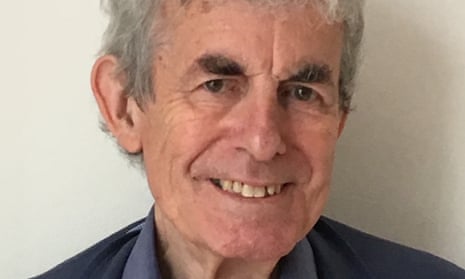My friend and colleague John Bynner, who has died aged 85, was a social scientist who championed Britain’s birth cohort studies and had a mission to put the evidence to the greater good.
John believed that data should inform policy to help people who are disadvantaged. His research on the penalties of the poor literacy and numeracy revealed in young adults by the cohort studies led to a national campaign. Skills for Life provided training to 14 million adults. His analysis showing the advantage of having savings on entering adulthood also inspired the Labour government to set up the Child Trust Fund, which opened savings accounts for 5 million children born between 2002 and 2011.
Cohort studies survey individuals through time, tracking health, work and attitudes as lives, and inequalities, unfold. The larger national studies, following births in 1958, 1970 and 2000, were led by John from 1988 to 2003. In 1998 he became director of the Centre for Longitudinal Studies (CLS) at the Institute of Education (now part of University College London). I was fortunate to be his deputy and successor at the CLS. He was an inspirational leader, whose achievements include a rich data resource of world standing, besides his own prolific writings and reports.
John was born in Ealing, west London, to Guy, an insurance clerk, and Frances (nee Smith), an artist, and attended Latymer Upper grammar school in Hammersmith. He graduated from Bristol University in 1961 with a degree in psychology. For his PhD in social psychology he made use of data collected in his first job, assistant on a survey of teenagers’ behaviour (1961-63); the thesis was completed while he was working for the government social survey (1964-70).
He then joined the Open University, rising to dean and professor of education. In a 1984 report he recommended improving access for the research community to the 1958 cohort data. It was when he was appointed professor at City, University, London in 1988 that he took over the 1958 cohort, joined shortly by the 1970 study, which was rescued from collapse. We transferred both cohorts to the CLS in 1998, and the portfolio expanded with the millennium cohort in 2000. After John retired in 2003 the cohorts continued to grow, thanks partly to the advocacy and reach of Longview, the thinktank he set up in 2004. Longview established the Society for Longitudinal and Lifecourse Studies and its international journal.
He met Val (nee Green) through a mutual friend in London around 1970, and they married in 1972. John is survived by Val, his children, Claire and James, his stepson, Robin, and five grandchildren, and by his sister, Ylana.
